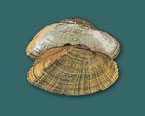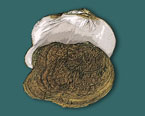What is a freshwater mussel?
Mussels are nature’s freshwater version of
marine clams like those you can find on the beach. Technically, a
freshwater mussel is a bivalved mollusk that lives in fresh water. They
are also referred to as freshwater clams, naiads and unionids ((the scientific name for the group to which most mussels belong). These
amazing animals are essentially living water filters, moving as much as
eight gallons of water per day through their internal filtration systems.
Considering that freshwater mussels can filter out dangerous bacteria such
as E. coli, their important role in keeping water clean cannot
be underestimated.
Mussels have a hard shell on the outside and are soft inside. Everyone
is familiar with what they look like on the outside, but just what exactly
is inside the shell?
Click here to take a look.
Living water pumps: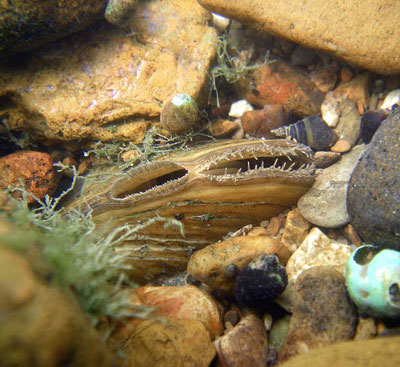
Mussels constantly pump water to feed and breathe. They filter out
suspended particles in the water. Exactly what they eat is a bit
of a mystery, and it probably varies by species and age of the mussel.
Detritus, phytoplankton, zooplankton, diatoms, bacteria
and other microorganisms are all filtered out of the water by mussels.
This makes the animals exceptionally vulnerable to water pollution and
degradation of the aquatic ecosystem.
Photo courtesy of Jeff Grabarkiewicz
Getting around: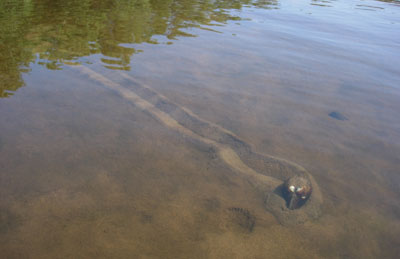
Like snails, mussels move slowly. You would too if you only had one foot. To
move, mussels extend their foot out of the shell and into the substrate. Once
they have a foothold, they retract the foot and pull themselves along. Some
species are active every day. Others may spend their entire lives in one
place, siphoning constantly.
Going the distance: 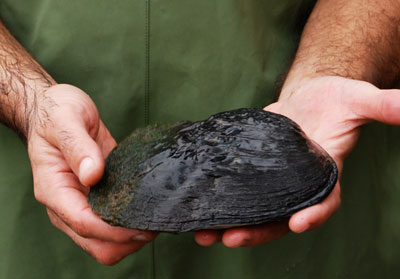
Mussels are the longest lived invertebrates; some have been reported to
live more than 100 years. More commonly, they live from 10 to
50 years depending on the species. Mussels have growth lines
on the outside of the shell, like rings on a tree. In many cases,
these growth lines represent years in the mussel’s life.


